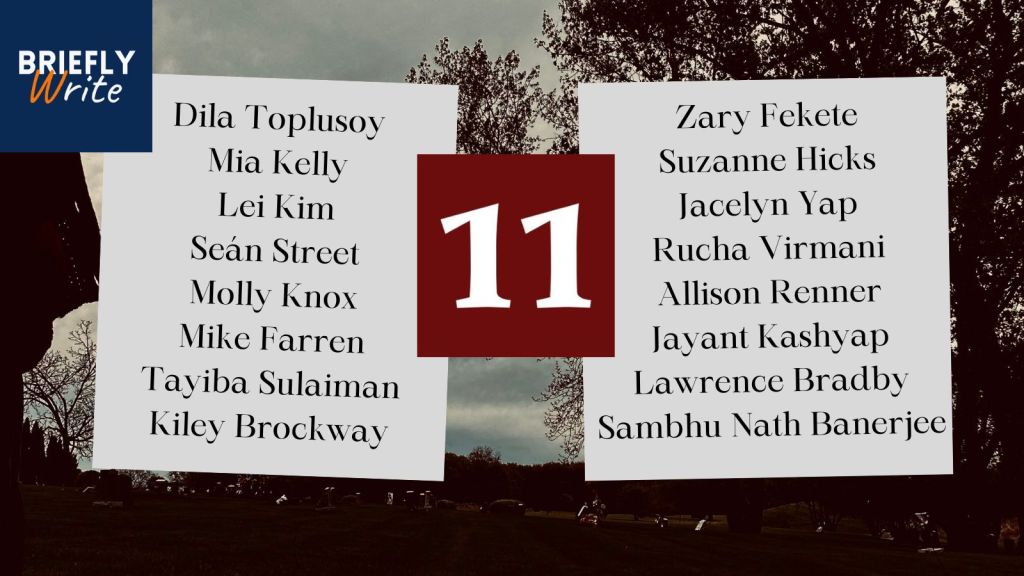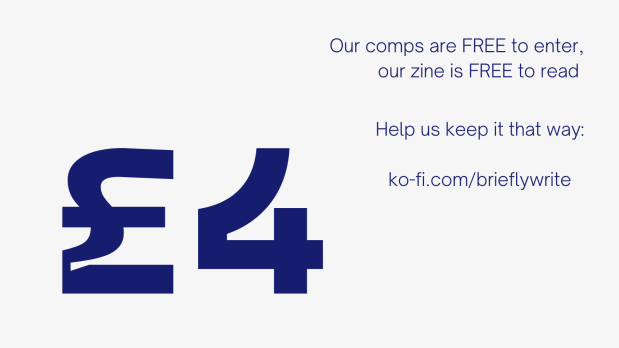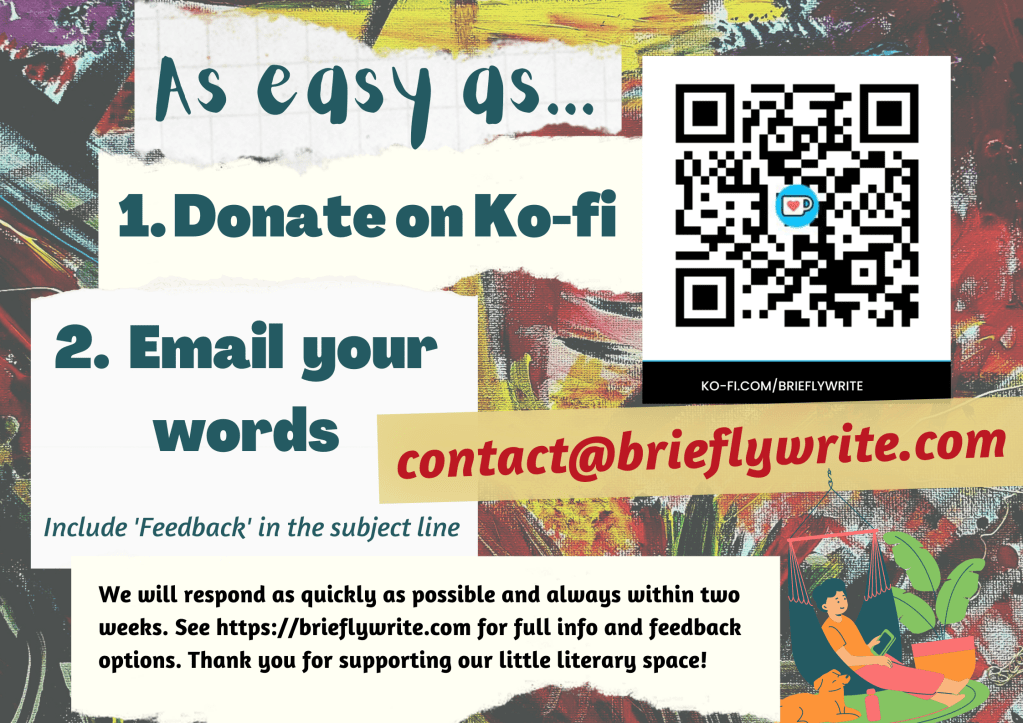What next? What comes after THIS and THAT and THESE and THOSE?
In our submission call in July, we stressed that ‘WHAT NEXT?’ was a loose theme. Submitters treated it that way. We read hundreds of AFTERS and THEREFORES and AS A RESULTS. But we also saw WHAT IFS? and WHY NOTS? and WHERE ARE WE GOINGS?
From hundreds of diverse and thought-provoking predictions, warnings and possibilities, Issue 11 formed. Our 16 brilliant writers and artists reflect on snapshots of a future and the future of snapshots. The results are enthralling, escapist, engaged and enlightening.
One of our favourite things about micro fiction and micro poetry is the way it continues to give something new on each re-read (or re-listen). We hope these poems, stories and artworks won’t be static. We hope they travel forward with the reader into whatever comes next…
Daniel & Elinor

WHERE?
Tayiba Sulaiman, ‘Table manners’
Mike Farren, ‘Reading Wise Children in a hotel lobby’
Rucha Virmani, ‘Late Spring in the Anthropocene’
Kiley Brockway, ‘Haunted’
Molly Knox, ‘I heard them howling and barking in the distance’
AIR
Seán Street, Two Poems
Mia Kelly, ‘The New Highway, 1972. Walsh Norrel. Black and white photograph.’
Dila Toplusoy, ‘live’
Jacelyn Yap, ‘Once a Home’
Allison Renner, ‘Dendrology’
Lawrence Bradby, ‘Empty-handed’
RE–
Suzanne Hicks, ‘Believe Me’
Jayant Kashyap, ‘A breeze in the midst of rain—’
Lei Kim, Two Poems
Zary Fekete, ‘Except, Grass’
Sambhu Nath Banerjee, ‘Next? A Dismal Destiny’

Big little news…
We are proud to announce that we are now paying all contributors to Briefly Zine. Thank you to everyone who has supported us on our journey so far.
Briefly Zine in 2024
Submissions for Issue 12 will open in April 2024, with an expected publication date of July. We will announce details for Issue 13 (themed) later in the year.
Poetry Prize
We recently announced the results of our third annual poetry prize. You can read all the winning and shortlisted poems here: Briefly Write Poetry Prize 2023. Our next competition will open in May 2024.








